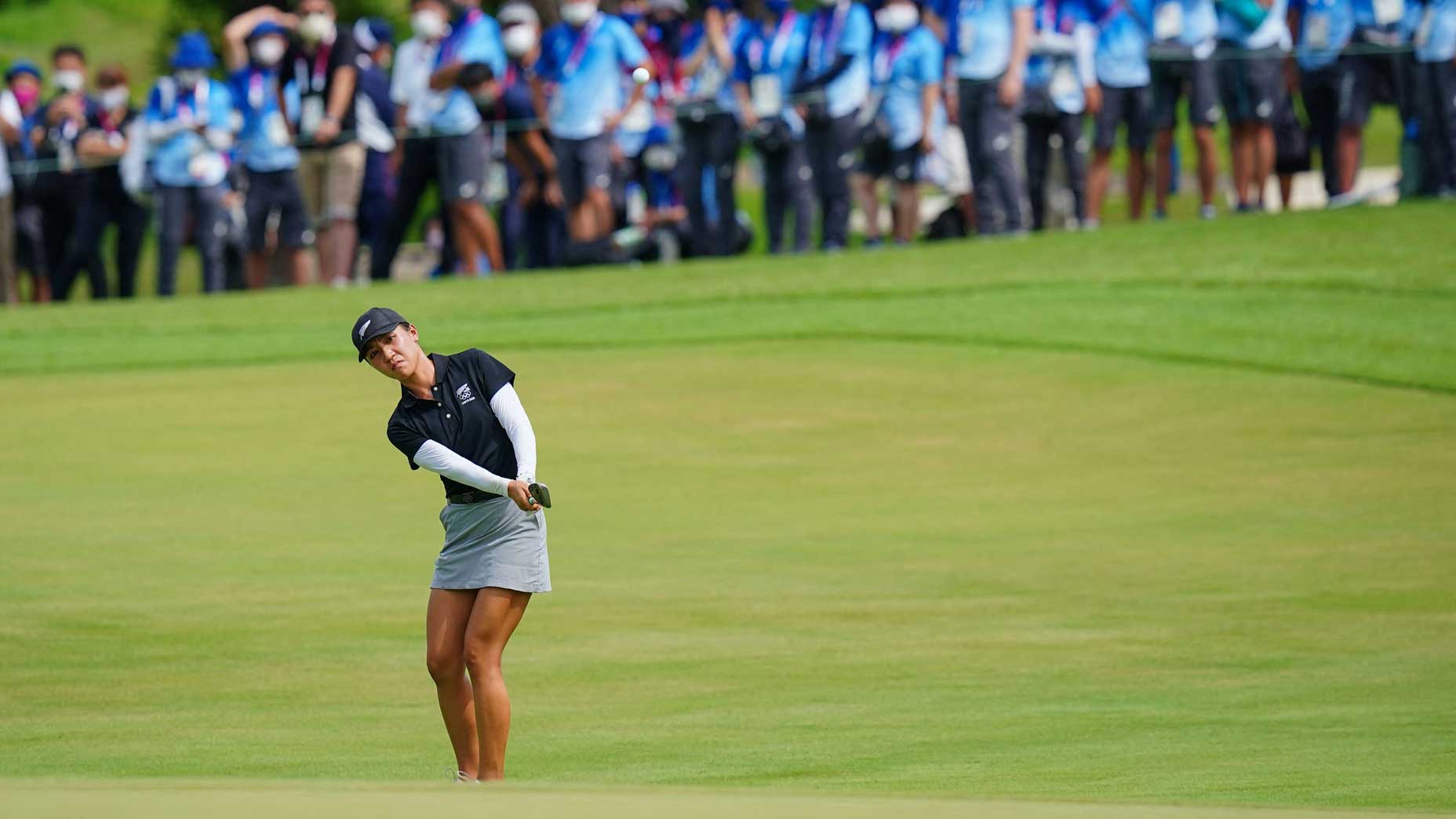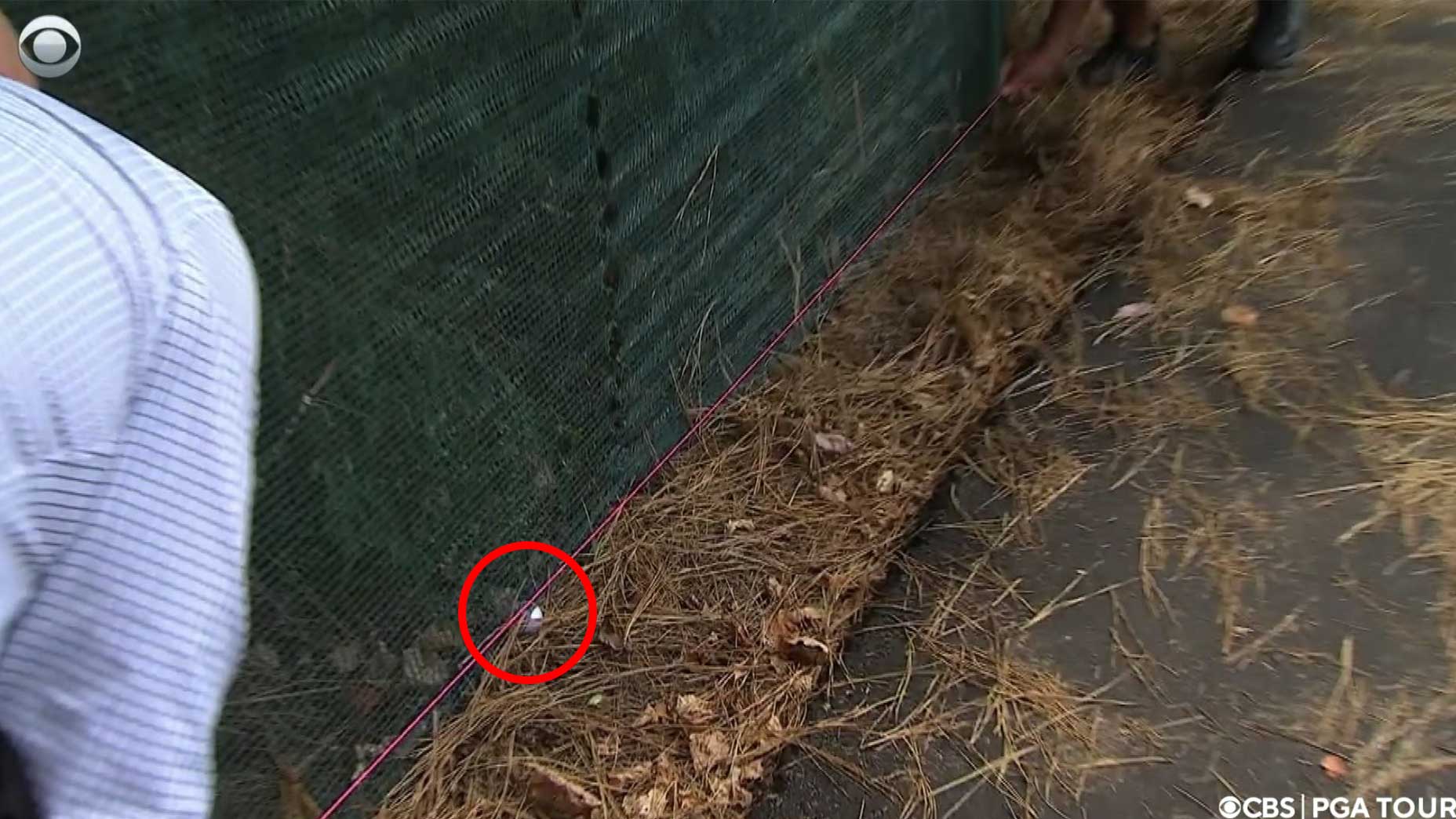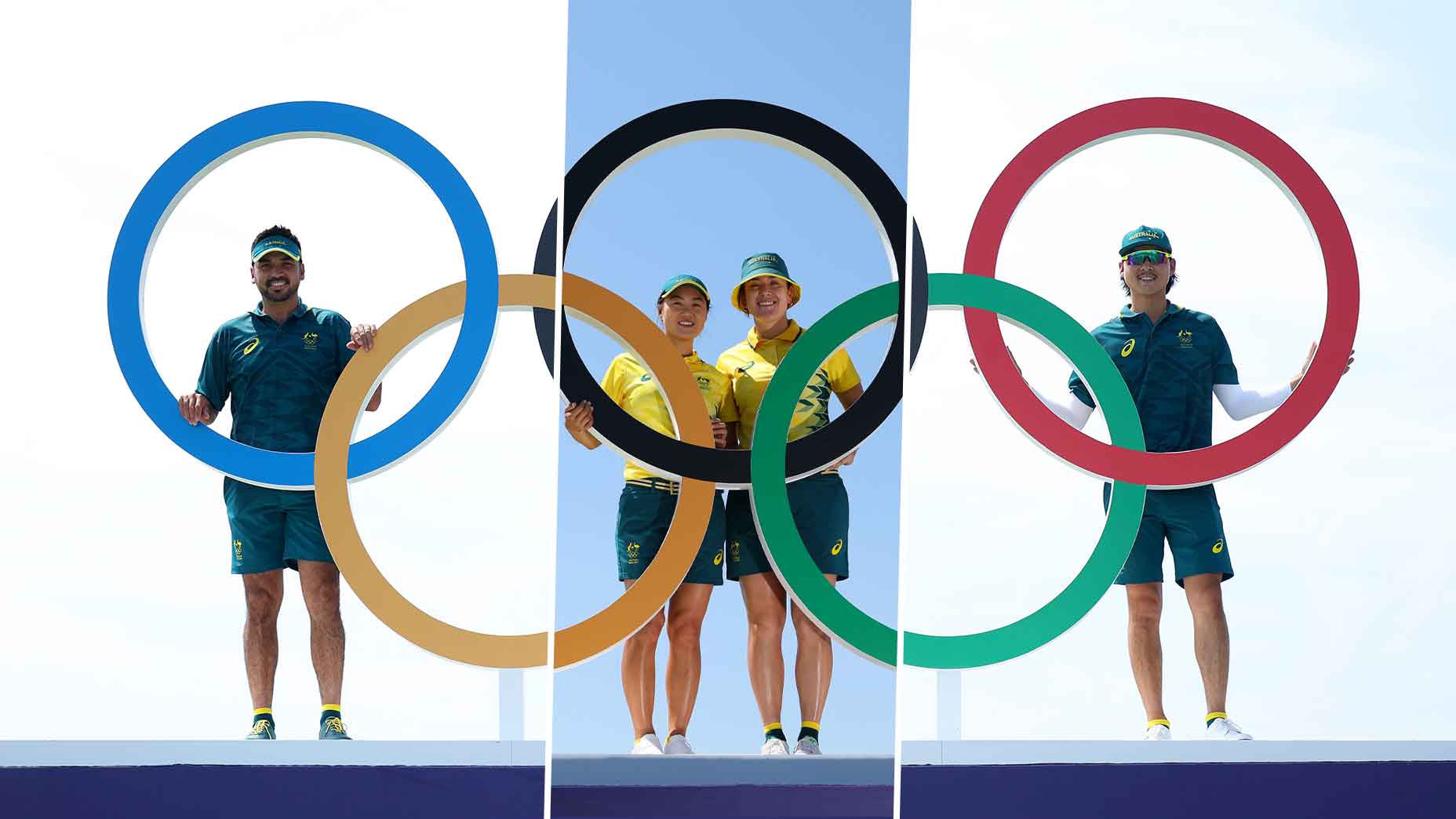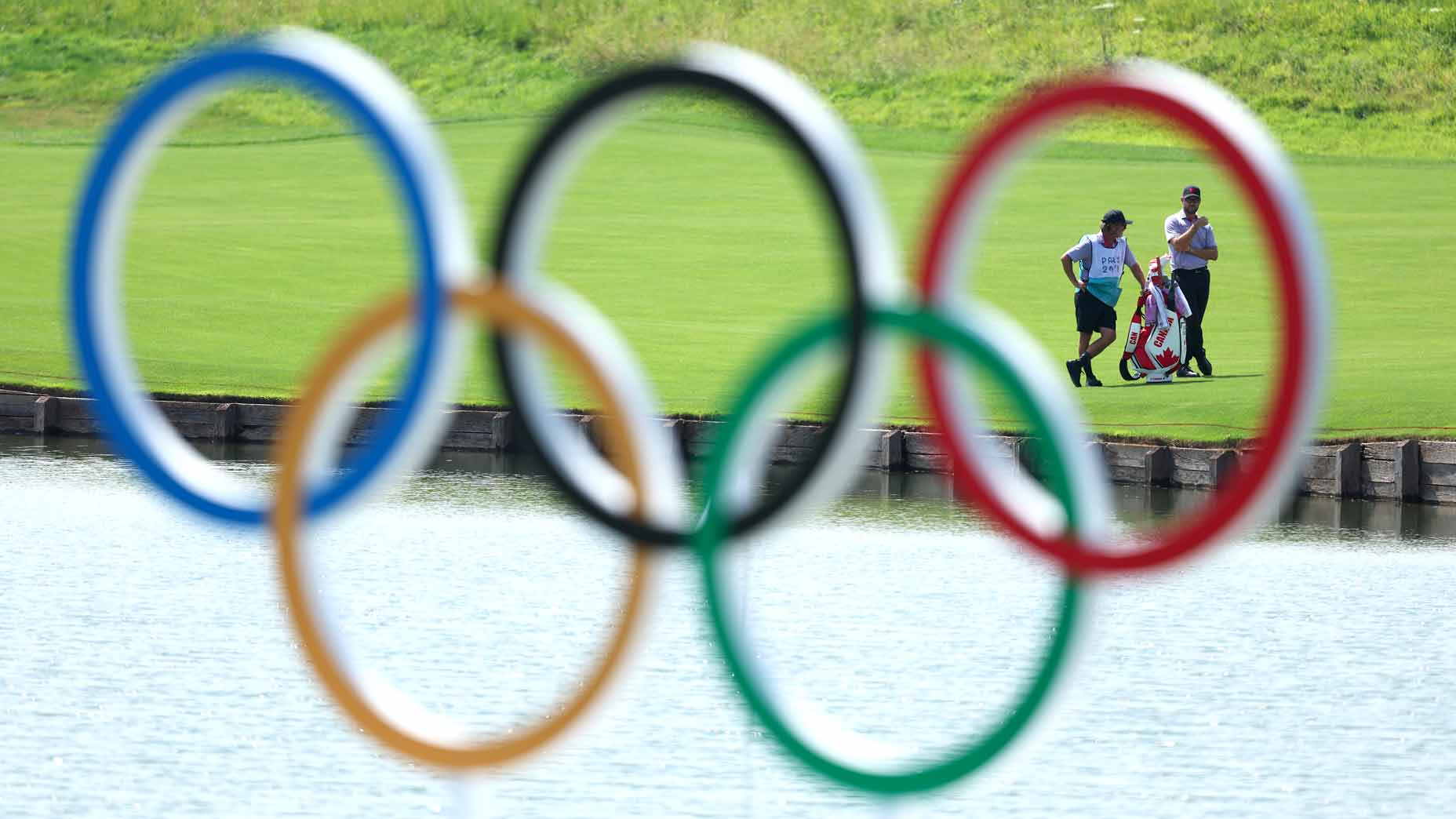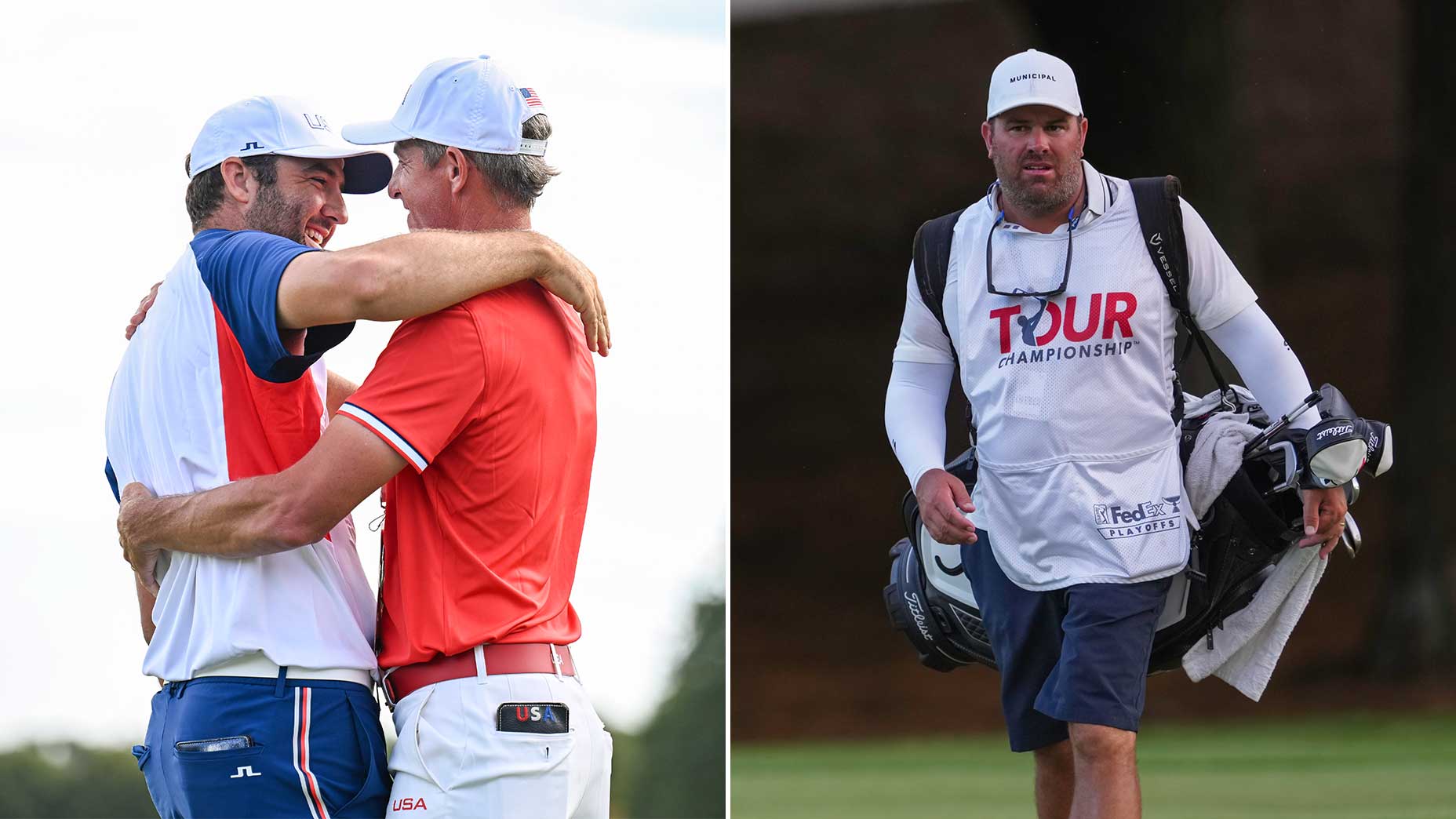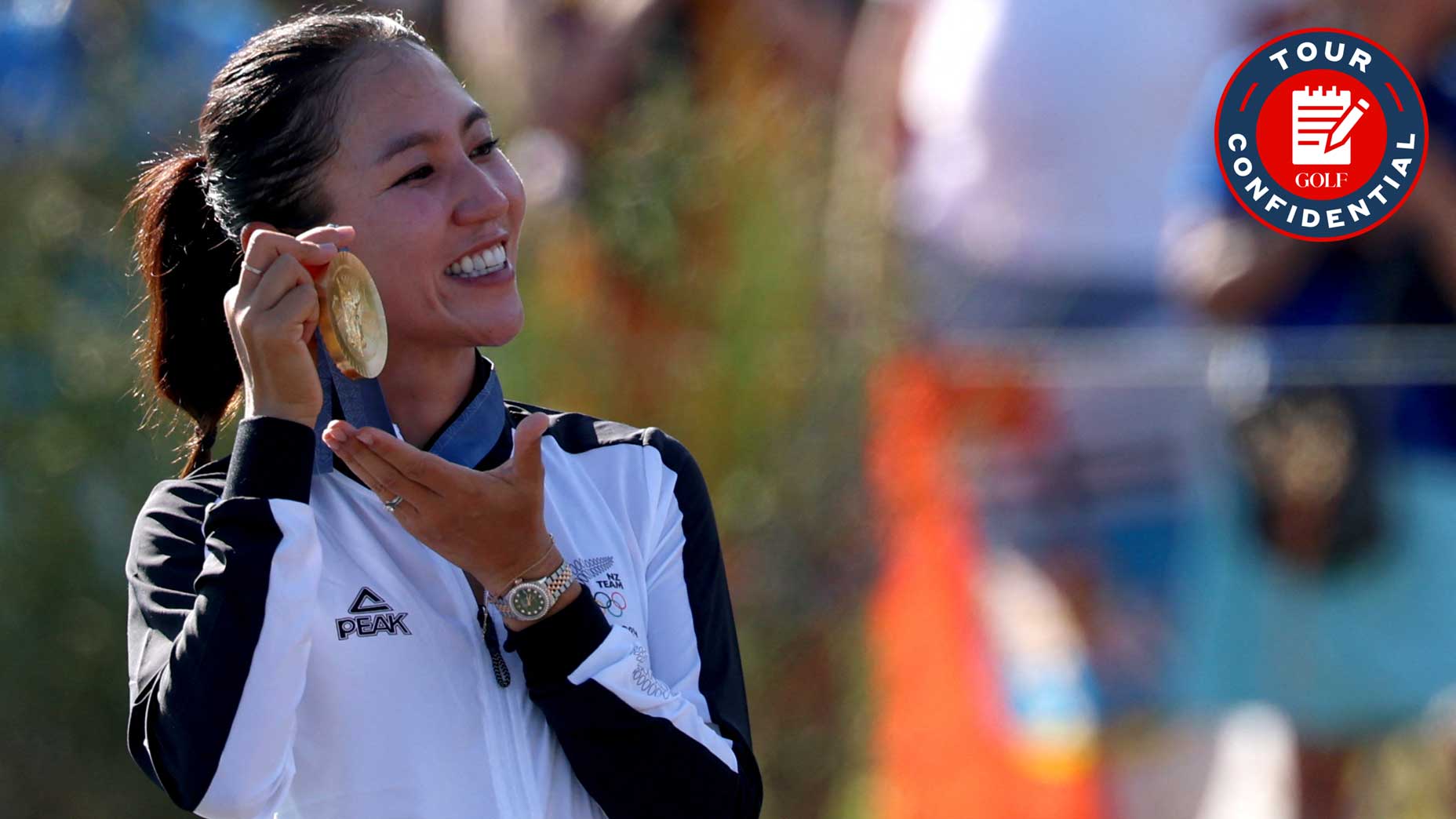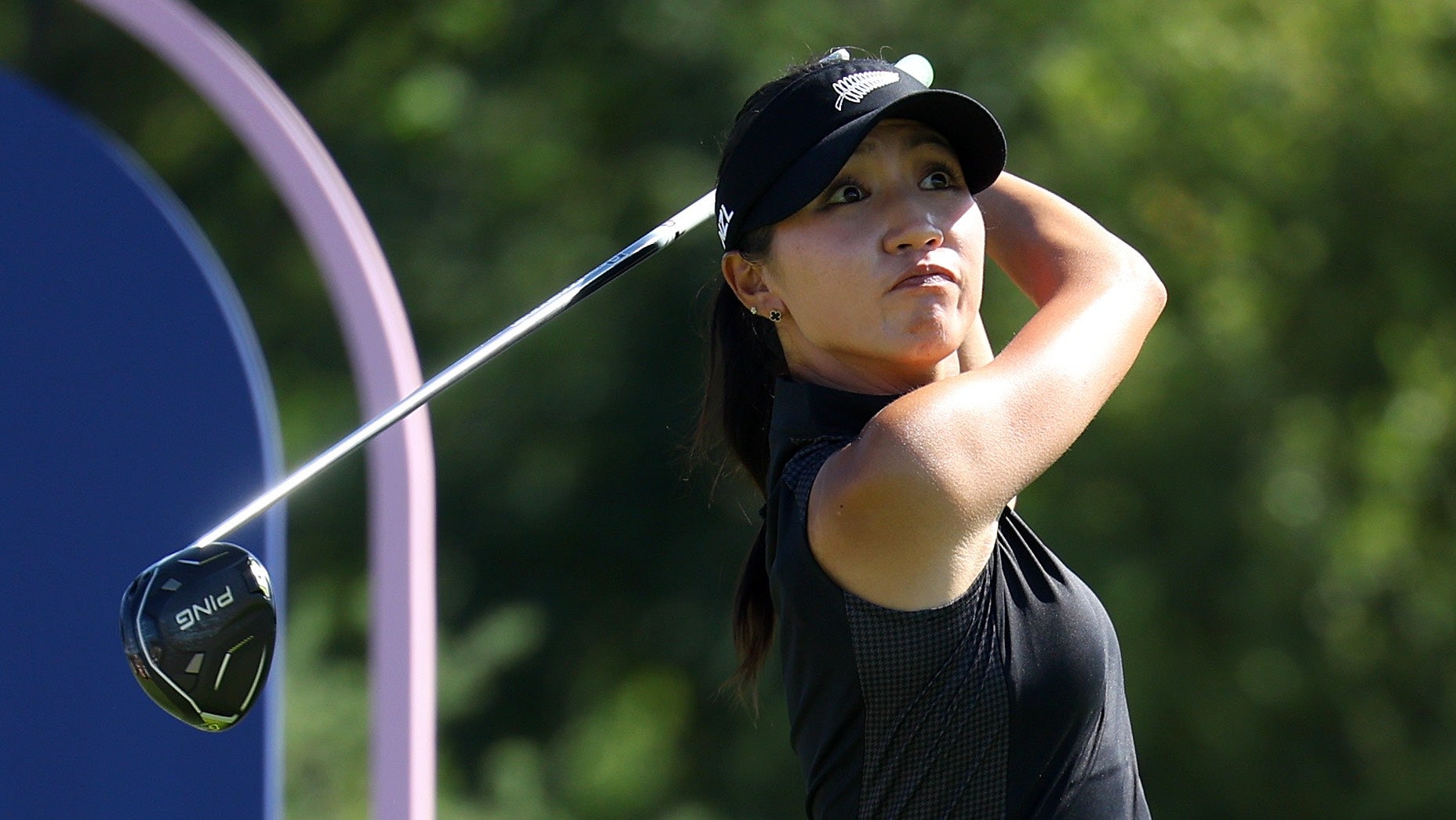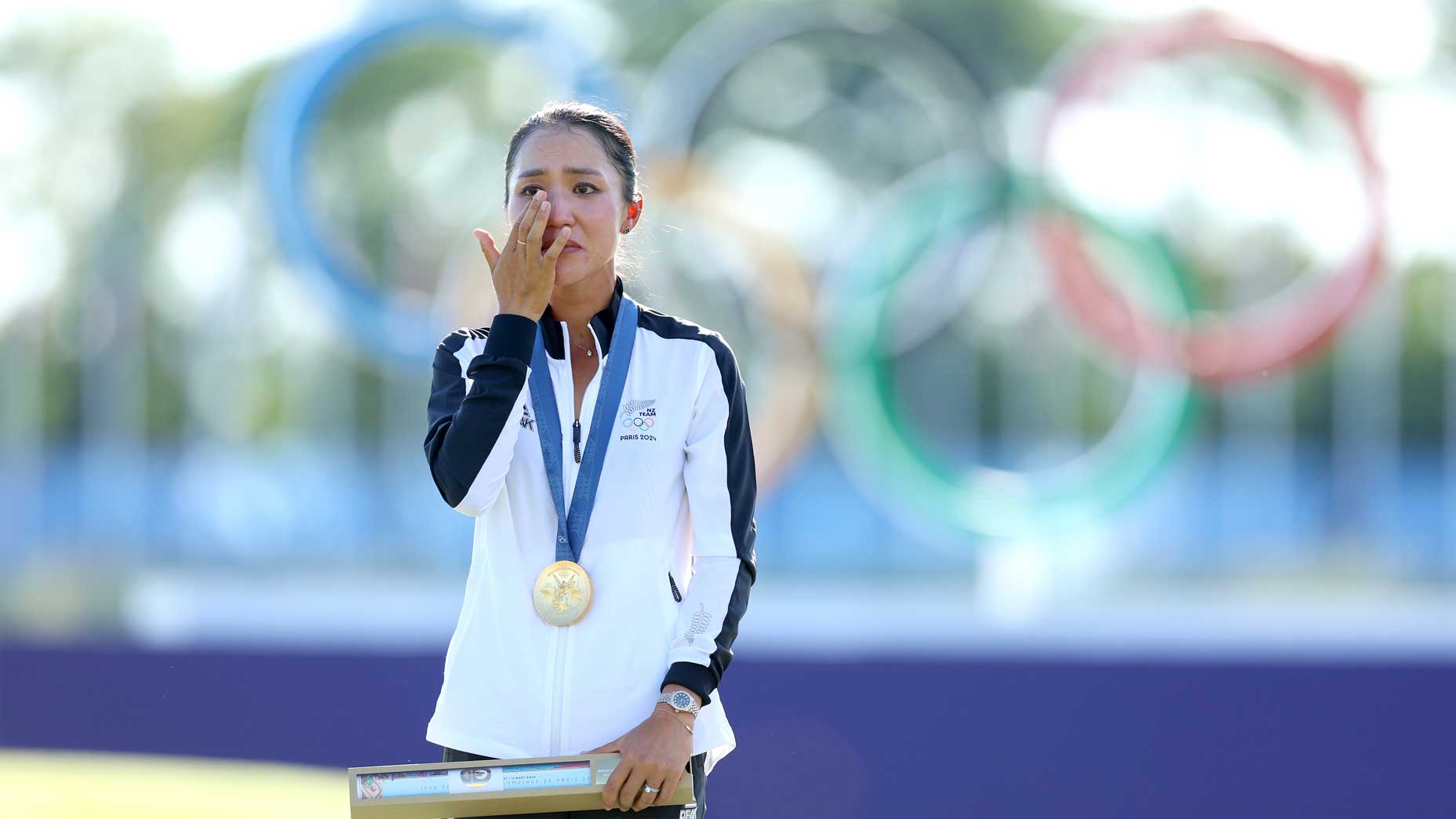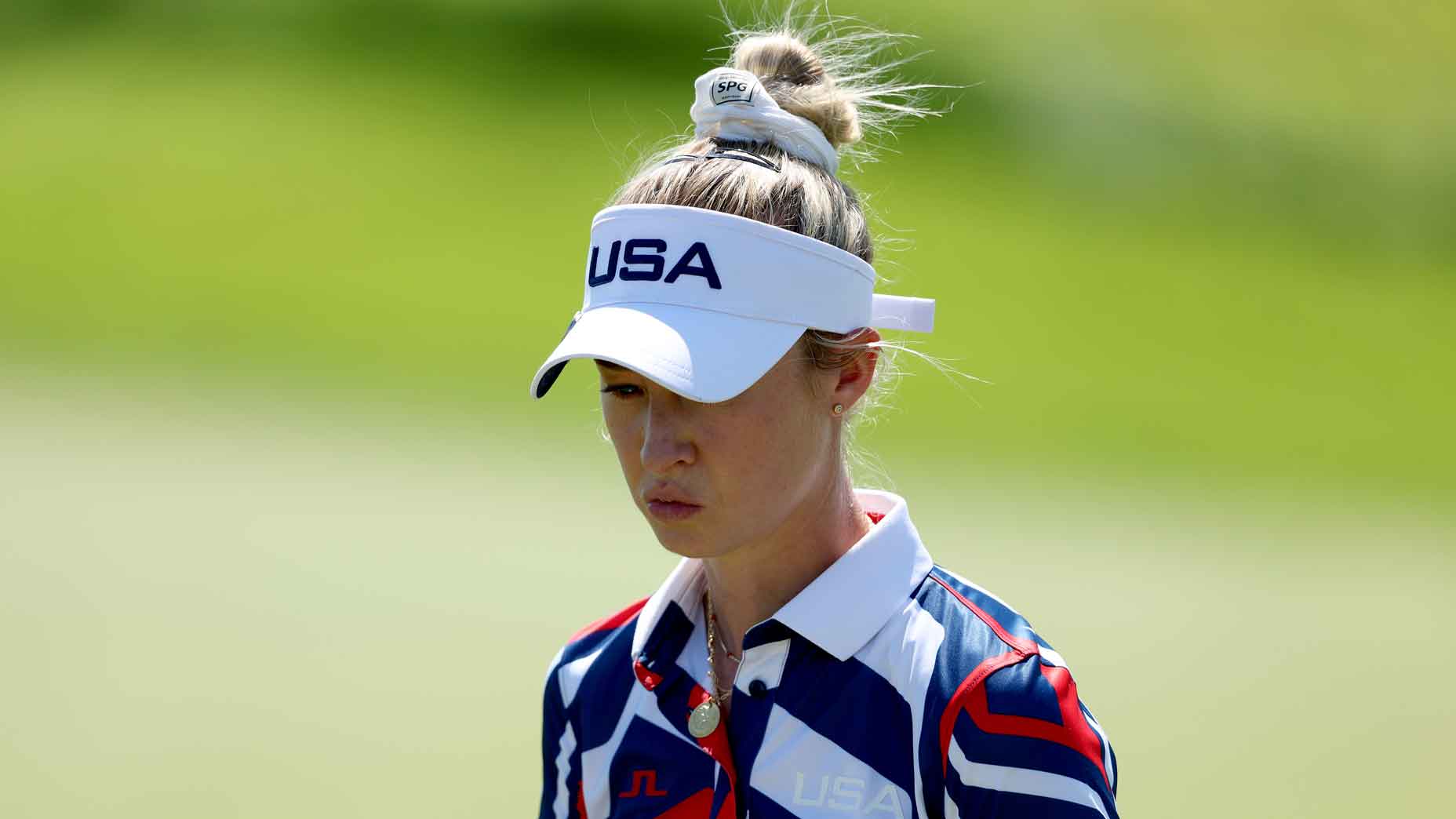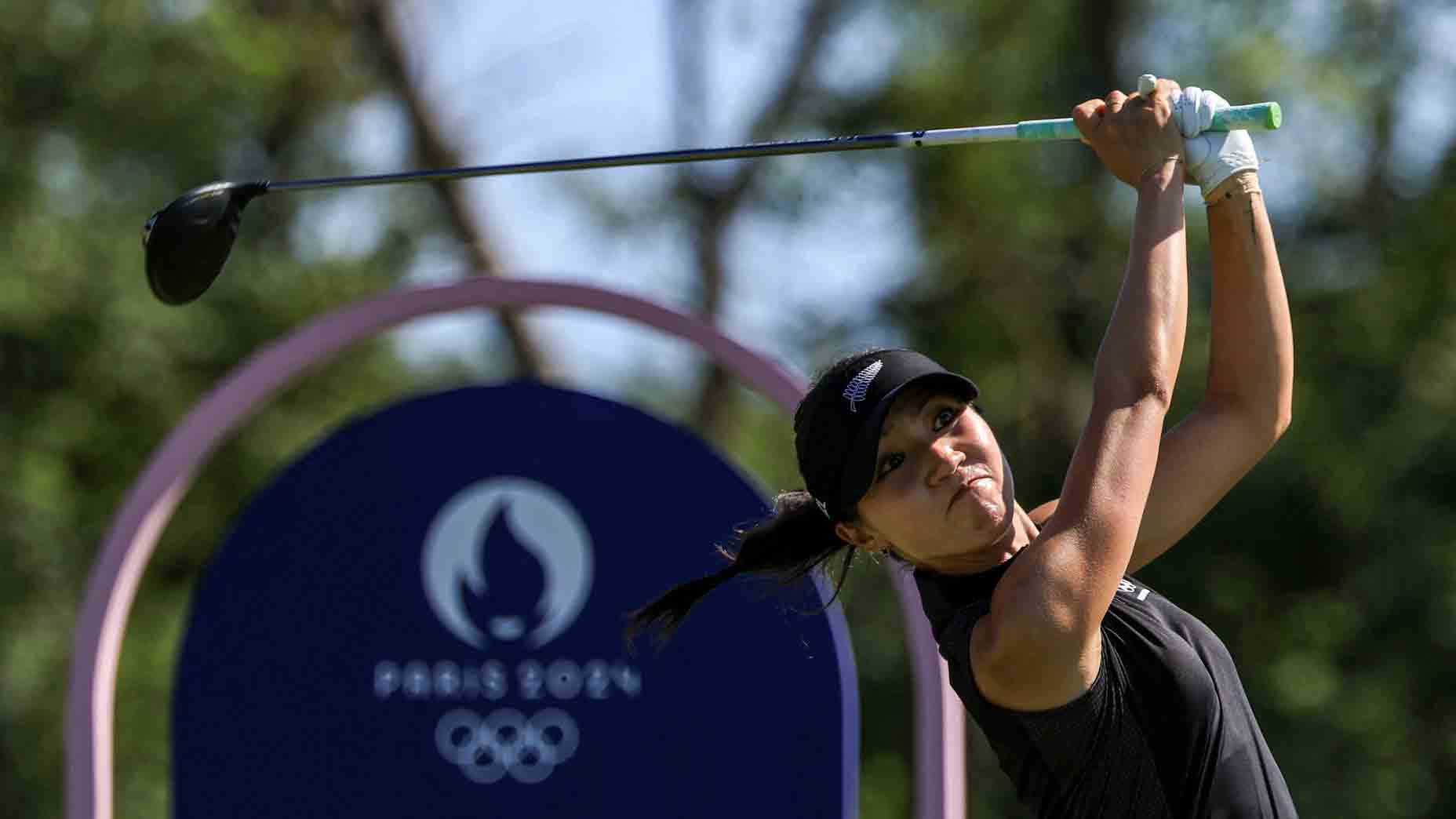Check in every week for the unfiltered opinions of our writers and editors as they break down the hottest topics in the sport, and join the conversation by tweeting us @golf_com. This week, we discuss the impressive win by Nelly Korda in Japan, the new PGA Tour schedule and what we’ll remember most about these Olympics.
1. Nelly Korda, in the middle of a dominating season, added another chapter with a gold medal in the women’s Olympic golf tournament. Korda had already won three times this season — including the KPMG Women’s PGA Championship for her first major title — and still has a couple of big events remaining. What impressed you most about her win in Tokyo?
Sean Zak, senior editor (@sean_zak): How calm it all looked. She got that lead and cruised. And then when it got tight, and she had the horn blown with just one hole to play, she seemed as calm as ever. After the delay, calm as ever. That downhill putt on 18, calm as ever. Just so calm.
Josh Sens: senior writer: The way she bounced back from that double bogey on 7 in the final round. It’s not easy playing as the front runner for such a long stretch. At that moment, when she lost her solo grip on the lead, it would have been easy for her to unravel. It looked like she might with the very next tee shot, a tug into the bunker. Instead, she reeled off three birdies in a row. That showed amazing mental toughness.
Dylan Dethier, senior writer (@dylan_dethier): In golf, we don’t usually see the favorites win. It’s tough to be expected to win and then do so anyway — the game is too fickle. I was most impressed that Korda won when she especially wanted to (she’s had the Olympics in her sights for months) and when the world expected her to (she entered as the betting favorite and World No. 1). Not an easy task.
Michael Bamberger, senior writer: That she got it done. That’s what the greats do. Tiger at Pebble in 2000, Hogan when he played his lone British Open, etc. She was the best player in a big event. There was every expectation that she should win. But golf is not tennis. Yet she won.
2. One of the biggest stories out of the Olympics may have come from a non-medalist: Aditi Ashok, who finished fourth and inspired her home country of India along the way. She ranked last in the field in driving distance, having lost some pop due to a bout with Covid earlier this year, but led the field in putting. Was she the best story of the men’s and women’s Olympic golf tournament? If not, who, or what, was?
Zak: I think that goes to Rory Sabbatini and his final-round 61 for all of Slovakia. If we told you a month ago that he’d take the silver with a 61 on Sunday, you’d guarantee him golf’s best story of the Olympics.
Sens: My son tells me the best part of Olympic golf was the skateboarding. But I’m with Sean on Sabbatini. After that, there were tons of great smaller moments. Xander’s gutty scramble-par on 18 to win. Rory McIIroy awakening to Olympic golf. Paul Casey’s obvious joy in just being. And if watching Lydia Ko’s great smiling sportsmanship (to say nothing of her play) wasn’t enough to put you in her fan club, I don’t know what it would take.
Why this Lydia Ko gesture might have been the Olympics most stunning momentBy: Nick Piastowski
Dethier: The best story was the big picture. Two deserving winners, two compelling tournaments, two nail-biting finishes, plenty of late-night intrigue from the golf-watching public. Golfers in attendance raved about the experience. There are tweaks we could make to the format, for sure, but golf in the Olympics works. That’s a big deal.
Bamberger: I think seeing more a genuine feeling, and maybe I am speaking for myself, that golf does belong in the Olympics. I think this format does not work, but golf belongs in the Olympics.
3. With the men’s Olympic golf tournament finishing last week and the women’s now complete, what’s your takeaway from golf’s two weeks in Tokyo? What will you remember most 10 years from now?
Zak: That anyone who isn’t on board with it, is just too far removed to appreciate it. Everyone who went to Rio seemed to love it. Everyone who went to Tokyo loved it. Even the players who struggled on the course. The horde of volunteers that followed Hideki Matsuyama brought life to what many people thought would be a lifeless event. Rory is all in on Paris. Dustin should be, too. Just wait until Riviera in ‘28. The progress has been slow but it’ll be lasting, I’d think.
Sens: The extreme weather for one. But also the lack of fans, and how much that affected the experience of watching the event. It’s great that everyone who was on hand enjoyed themselves. But that’s a pretty self-selecting group; they chose to go in the first place. That tournament with crowd energy would have been so much more riveting, especially with Japanese players in the mix down the stretch in both the men’s and women’s competitions.
Dethier: I remember my sixth-grade teacher advised us to skim through our tests when we started, just to see what was ahead — so I sort of answered this one above. But 10 years from now I’ll remember Xander Schauffele’s first crowning victory, the gold medal that cemented Nelly Korda’s superstardom and, sadly, the empty bleachers. Oh, plus that 7-for-1 bronze medal playoff at 3 a.m. EST.
Bamberger: That you can have a men’s event followed by a women’s event on the same course in consecutive weeks. That four-round, 60-person medal events are too ordinary for an Olympics.
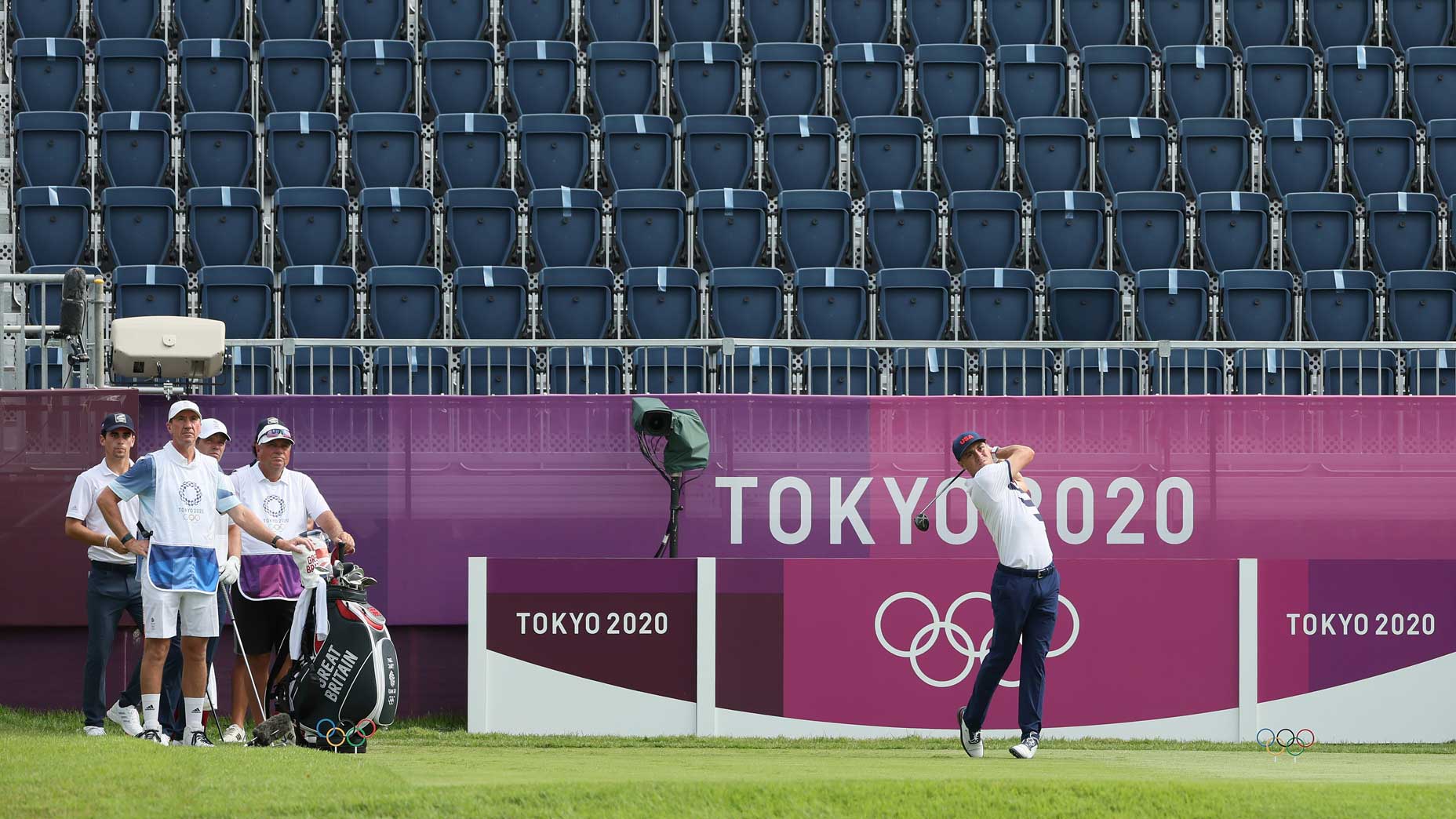
4. Abraham Ancer, at the WGC-FedEx St. Jude Invitational, survived a playoff and a TPC Southwind course that wrecked the third-round leaders to win his first PGA Tour event. Ancer had been knocking on the door for a while, and he’s currently 21st in the world. With victory No. 1 out of the way, what’s his ceiling?
Zak: Way higher than I ever thought it’d be. When he first burst onto the scene years ago, it seemed like he was peaking. But he’s never wavered. He played well in the Presidents Cup. He’s played well in majors. Invitational Tour events. He’s just a damn good golfer who Mexico should be extremely proud of.
Sens: There’s just too much talent out there for a guy like Ancer to dominate for long stretches. But it’s easy to picture him being in the mix consistently for a long, long time. Furyk-like, maybe? He clearly feels comfortable in big moments, which you can’t say for any number of players who might be more impressive tee to green.
Dethier: Higher than you’d think if you just saw him on the range. Ancer doesn’t hit it far but he hits it straight. He peppers greens. He may not overpower par-5s but he’s second on Tour in par-4 scoring average — and that didn’t even include this week. I don’t think World No. 1 is soon to follow, but Ancer could surprise plenty of people with a run at the edge of the top 10.
Bamberger: He’s likable, bordering on charismatic. He’s an internationalist. He has a broad view of the world. He could have a major impact on golf in Mexico. As a player, I see him as a Max Homa, and Max Homa as an Abe Ancer.
5. During a week in which Bryson DeChambeau admitted he hasn’t yet received the Covid-19 vaccine, Golfweek’s Eamon Lynch reported that the PGA of America has asked Ryder Cup leadership to see if potential U.S. players would get vaccinated, if they aren’t already. Would one team having more vaccinated players be a small or significant advantage?
Zak: Probably small. It seems like most of the players will be vaccinated. There are only 24. You’re not in great danger of catching the virus outdoors at a golf course. Players will arrive at Whistling Straits on Monday and leave a week later.
Sens: An advantage in the sense that it would minimize a player’s chance of testing positive. Getting sidelined like that does your team no favors. And being a team player is no small thing.
Tape measure grants Bryson DeChambeau free drop at WGC-St. JudeBy: James Colgan
Dethier: The sideshow of a sidelined golfer would add unnecessary stress to the team room and provide unnecessary ammo for the fans in attendance. In other words, limiting players’ chances to get and spread Covid seems like a rock-solid idea, and the vaccine does that. But no, I don’t expect it to play a big role in the outcome (and I sure hope it doesn’t).
Bamberger: Not much of advantage, but an important message.
6. The PGA Tour released its new schedule for the 2021-22 season with a few new tweaks, things like a co-sanctioned European Tour event (the Scottish Open), two fewer World Golf Championships and more. What’s the most significant takeaway our readers need to know when it comes time for water-cooler chat?
Zak: Two fewer WGC’s seems like a great move, but I’m all in on the Tour propping up the big European events. The Irish and Scottish Opens fit so well in the typical Tour schedule. Elevating them actually feels like a win-win for this player-run organization.
Sens: What Sean said. Love the idea of more coverage for those events, with closer looks at venues we don’t see much of. That, and we still don’t know whether Tiger will be physically able to play next year. Or the year after. Or …
Dethier: If you like waking up to a hot breakfast and a chilly Open Championship, good news: the Irish and Scottish Opens are going big-time. The PGA Tour is piggybacking on some of what you love about the Euro Tour. I’m used to eye-rolling at these Tour announcements but these changes seemed all good, with one exception: the Boston area needs a PGA Tour event that’s closer than Hartford, Conn.
Bamberger: Win the Scottish, go to the Masters.

